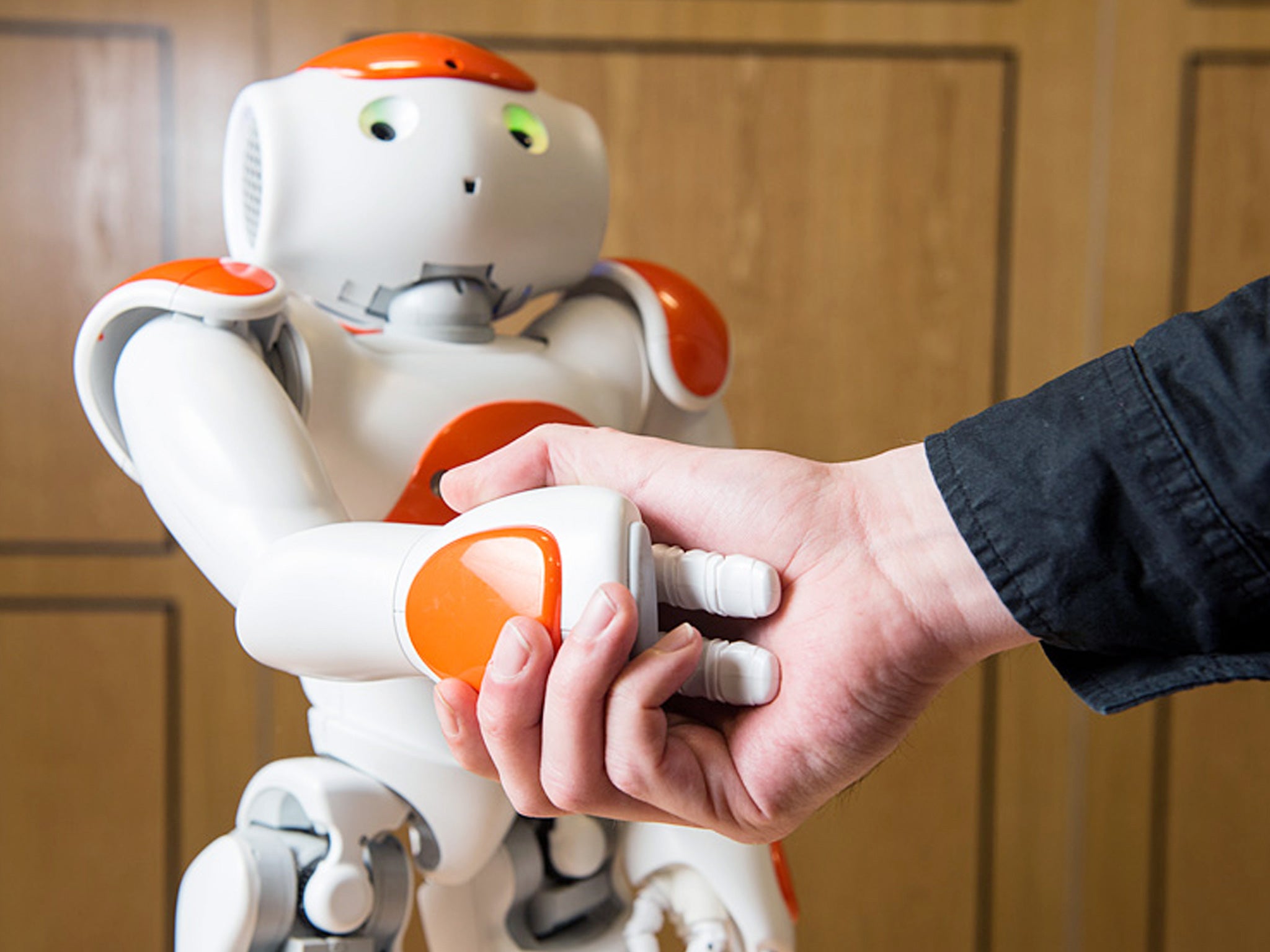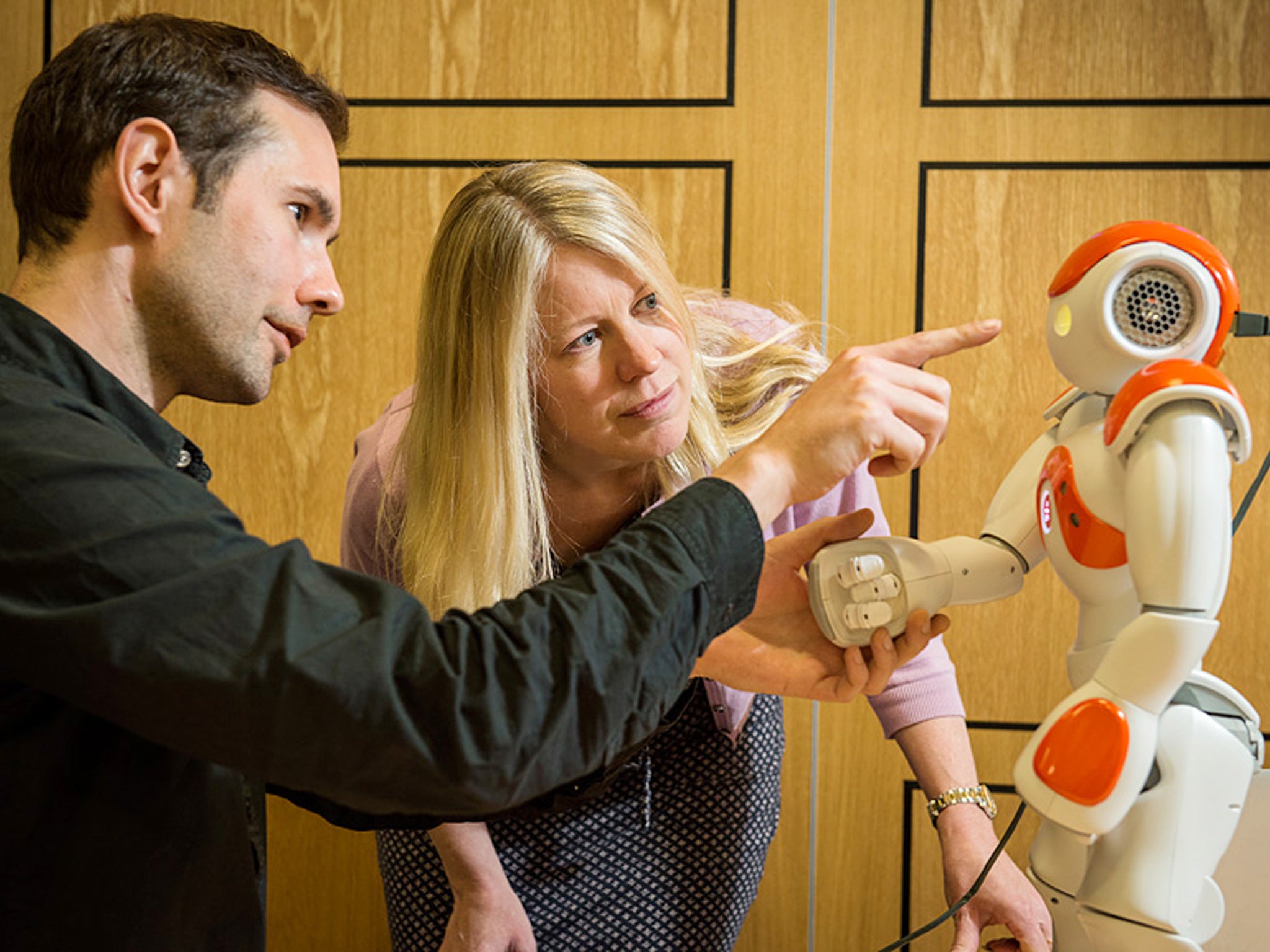Handshakes so effective at building trust during business negotiations that they work even when one of the parties is a robot
A robot called Nao showed a handshake builds trust when it represented one party in a mock house sale, a study found

Your support helps us to tell the story
From reproductive rights to climate change to Big Tech, The Independent is on the ground when the story is developing. Whether it's investigating the financials of Elon Musk's pro-Trump PAC or producing our latest documentary, 'The A Word', which shines a light on the American women fighting for reproductive rights, we know how important it is to parse out the facts from the messaging.
At such a critical moment in US history, we need reporters on the ground. Your donation allows us to keep sending journalists to speak to both sides of the story.
The Independent is trusted by Americans across the entire political spectrum. And unlike many other quality news outlets, we choose not to lock Americans out of our reporting and analysis with paywalls. We believe quality journalism should be available to everyone, paid for by those who can afford it.
Your support makes all the difference.Handshakes are so effective in building up personal trust during business negotiations that they work even when one of the parties involved is a robot.
A scientific study found that when two people who may be located thousands of miles apart communicate through a robot, shaking hands with the machine and communicating the physical act still encouraged co-operation and mutual understanding.
The findings could provoke a revolution in the art of conducting a video conference or Skype interview.

Researchers at the University of Bath set up mock house-sale negotiations using Nao, a 23in-tall humanoid robot designed to accompany people around the property. A total of 120 human participants were involved, and each was randomly assigned the role of buyer or seller.
One person was present in the meeting with Nao, while the other took part in the meeting remotely through the robot’s built-in head camera and microphone.
Sensors in the robot’s hand transmitted a signal when it was grasped, making a controller in the distant person’s hand vibrate at the same time.
The researchers varied the experiment with negotiations conducted either with no handshake at the beginning, or with handshakes with and without vibration to the remote person.Results showed that the act of shaking hands was as important when people interacted virtually through the robot as when people negotiate face to face.

The study focused on the impact of handshaking on levels of co-operation and trustworthiness, as well as an individual’s willingness to deliberately mislead.
The “virtual” handshake created a sense of “connectedness” between both people as they experienced the sensation of grasping a hand, or vibration through a controller during the handshake – even making estate agents less likely to treat each other unfairly while hammering out a deal, according to the research team.
The remote person, who could be thousands of miles away and essentially hidden from view, did not exploit their tactical advantage in such conditions, the scientists said.
Dr Chris Bevan, of the university’s department of psychology, said: “This experiment highlights just how important the symbolic ritual of shaking hands is upon the way people come to judge others as being trustworthy and willing to co-operate.
“Using a robotic avatar, we were able to demonstrate that this effect holds true even when a person cannot see the face of their counterpart.”
Professor Danaë Stanton Fraser said: “The formation of interpersonal trust and co-operation are key to future success of computer-supported co-operative work, yet the availability of many of the social cues we rely upon when interacting one to one are often restricted in these scenarios.”
Join our commenting forum
Join thought-provoking conversations, follow other Independent readers and see their replies
Comments